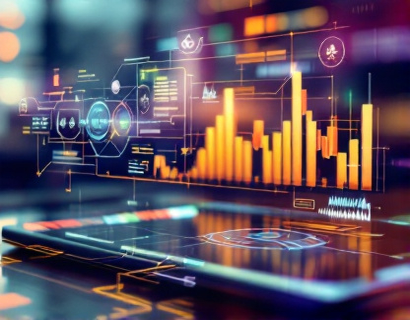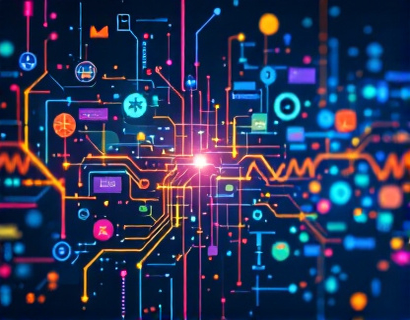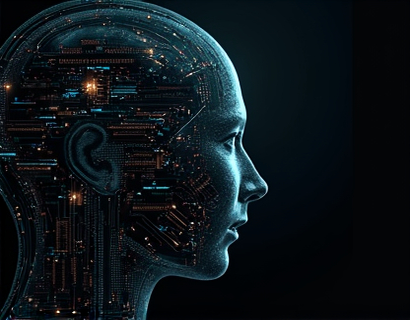Unlocking Enhanced Digital Experiences Through the Synergy of Crypto and AI
The intersection of cryptocurrency and artificial intelligence (AI) is giving rise to a new era of digital innovation, where the boundaries of traditional technology are being redefined. This merging of two revolutionary fields is not only transforming how we interact with digital platforms but also driving unprecedented growth in the tech sector. As tech enthusiasts and professionals, understanding the dynamics and potential of this synergy is crucial for staying ahead in the rapidly evolving digital landscape.
The integration of AI into cryptocurrency systems has opened up a myriad of possibilities, from enhancing security and transaction efficiency to creating more intuitive and personalized user experiences. This article delves into the latest innovations at the forefront of this convergence, exploring how these advanced technologies are reshaping digital interactions and fostering a more connected and efficient tech ecosystem.
Enhanced Security Through AI-Driven Cryptography
One of the most significant benefits of combining AI with cryptocurrency is the enhancement of security measures. Traditional cryptographic methods, while robust, are increasingly being challenged by sophisticated cyber threats. AI brings a dynamic and adaptive approach to cryptography, enabling systems to learn from patterns and anomalies to predict and mitigate potential security breaches.
Machine learning algorithms can analyze vast amounts of data in real-time, identifying suspicious activities and potential vulnerabilities before they can be exploited. This proactive approach to security not only protects user assets but also builds trust in cryptocurrency platforms. For instance, AI-powered systems can detect and prevent fraudulent transactions, ensuring a safer environment for users to conduct financial activities.
Optimized Transaction Processing with AI
Transaction processing is a critical aspect of cryptocurrency systems, and AI is playing a pivotal role in optimizing this process. Traditional blockchain networks often face scalability issues, leading to slower transaction times and higher fees. AI algorithms can streamline transaction validation and confirmation, reducing the load on the network and improving overall efficiency.
Smart contracts, which are self-executing contracts with the terms directly written into code, can be enhanced with AI to automate complex decision-making processes. AI can analyze conditions and execute transactions based on predefined criteria, ensuring accuracy and speed. This not only accelerates the transaction process but also reduces the need for intermediaries, lowering costs and increasing accessibility.
Personalized User Experiences Through AI
The user experience in cryptocurrency and blockchain applications can be significantly enhanced through AI-driven personalization. By analyzing user behavior and preferences, AI can tailor recommendations and interfaces to individual needs, making the platform more intuitive and user-friendly.
For example, AI can curate a personalized dashboard for users, highlighting the most relevant information and tools based on their activities and interests. This level of customization not only improves user satisfaction but also increases engagement and retention. In the context of digital wallets and trading platforms, AI can provide real-time insights and alerts, helping users make informed decisions.
Predictive Analytics and Market Insights
AI's ability to process and analyze large datasets makes it an invaluable tool for market analysis and prediction in the cryptocurrency space. Traders and investors can leverage AI-driven analytics to gain deeper insights into market trends, identify potential opportunities, and mitigate risks.
Machine learning models can analyze historical data, news sentiment, and social media trends to forecast price movements with a higher degree of accuracy. This predictive capability empowers users to make more informed investment decisions, potentially leading to better returns. Additionally, AI can monitor market conditions in real-time, providing timely alerts and recommendations to adapt to changing dynamics.
Decentralized AI Applications
The concept of decentralized AI is gaining traction, particularly within the cryptocurrency community. Decentralized AI platforms allow for the distribution of AI computations across a network of nodes, eliminating the need for centralized servers and enhancing privacy and security.
These platforms can leverage the collective computing power of the network to perform complex AI tasks, such as training machine learning models, without compromising user data. This decentralized approach not only democratizes access to AI technologies but also aligns with the core principles of blockchain, promoting transparency and trust.
Challenges and Considerations
While the integration of AI and cryptocurrency offers numerous benefits, it also presents several challenges that need to be addressed. One of the primary concerns is the regulatory landscape, as both cryptocurrency and AI are subject to evolving legal frameworks. Ensuring compliance with regulations while innovating is crucial for the sustainable growth of these technologies.
Another challenge is the computational resource intensity of AI algorithms, which can strain the energy efficiency of blockchain networks. Developing more efficient AI models and optimizing blockchain architectures are essential to mitigate these issues. Moreover, the ethical implications of AI, such as bias and transparency, must be carefully considered to build trust and ensure responsible use.
Future Prospects and Innovations
The future of AI and cryptocurrency is promising, with ongoing research and development paving the way for new innovations. One area of focus is the integration of AI with other emerging technologies, such as the Internet of Things (IoT) and 5G networks, to create more interconnected and intelligent systems.
For instance, AI can enhance the functionality of IoT devices by enabling more sophisticated data analysis and decision-making. In the context of cryptocurrency, this could lead to smarter and more responsive financial systems. Additionally, the development of quantum computing holds the potential to revolutionize both AI and cryptography, offering unprecedented computational power and security.
As the tech community continues to explore the synergies between AI and cryptocurrency, the possibilities for enhancing digital experiences and driving growth in the tech sector are vast. By embracing these innovative technologies, we can look forward to a future where digital interactions are more secure, efficient, and personalized.










































